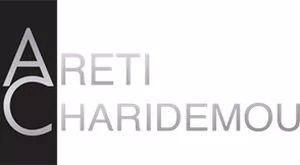Introduction
The lack of consistency and variance in the degree of protection afforded to investors across the European Union, have raised concerns as to the efficiency of the existing AIFMD and UCITS frameworks. These concerns were also voiced in ESMA's opinion in July 2017 which called for enhancements to current rules.
In an effort to tackle the practical implications deriving from the shortcomings of the AIFMD and UCITS frameworks, two Commission Delegated Regulations were published aiming to reinforce existing rules and regulations and to introduce practice harmonisation.
In October 2018 the following regulations were published in the EU's Official Journal:
- Commission Delegated Regulation (EU) 2018/1618 amending the safekeeping provisions of Delegated Regulation (EU) 231/2013 (the AIFMD Delegated Regulation); and
- Commission Delegated Regulation (EU) 2018/1619 amending the safekeeping provisions of Delegated Regulation (EU) 2016/438 (the UCITS Delegated Regulation).
Core changes
The rules affect AIFs and UCITs depositaries and specifically endeavour to bolster safekeeping, asset segregation and sub-delegation practices.
Reconciliations
The regulations impose a requirement for depositaries to reconcile their internal accounts and the records maintained by third parties to which safekeeping has been delegated. The trading frequency of the client of the depositary and of other clients whose assets are held in the same omnibus financial instruments account, must be taken into consideration when determining the frequency of reconciliations.
The newly introduced requirements force depositaries to create and maintain their internal accounts and records which could ultimately lead to more costs and operational hurdles for depositaries. It is a common view among practitioners that depositaries are likely to simply duplicate the records of their custodians thus resulting in no additional investor protection.
Recordkeeping
Third parties entrusted with the safekeeping of assets by depositaries are also required to maintain adequate records that enable them to identify the precise nature, location and ownership status of those assets, as well as to distinguish assets belonging to the depositary's clients or the depositary on its own account, from assets which belong to the third party or its other clients.
Contractual terms of delegation agreement
Further to the above, the rules set the minimum contractual requirements that should be included in a delegation agreement between a depositary and a third party. This set of minimum contractual terms extends to the entire custody chain and covers potential sub-delegation agreements.
The contractual terms introduced need to enable the depositary to identify all the entities involved in the custody chain and to inspect and access all relevant records and accounts of the third party and any entity to which safekeeping has been sub-delegated. The new rules also introduce the requirement to provide adequate information to the depositary in order to facilitate the fulfillment of its oversight obligations.
To achieve compliance with the aforementioned amendments, market practitioners will need to review and possibly re-negotiate their existing delegation agreements. This is expected to prove an expensive and time consuming process, especially since a number of custodians do not fall within the scope of these regulations and therefore, are not obliged to comply with their more stringent requirements.
Asset segregation
The rules provide detailed asset segregation requirements governing third parties to which custody has been assigned. Custodians can hold assets of UCITS, AIF and other clients of a depositary in the same omnibus account provided that these assets are segregated from the depositary's own assets, the custodian's own assets and from the assets belonging to other clients of the custodian.
To reflect the revised segregation requirements, amendments to existing AIFMD and UCITS depositary agreements will need to be implemented and separate accounts per depositary will have to be created. This could result in additional costs and operational barriers.
Third-country depositaries
The regulation obliges AIFs that assign custody of the assets to third parties which are located not within the EEA to acquire a legal opinion with regards to the competence of the third country's insolvency laws. Moreover, the new provisions require AIFs to assess and ensure that the third party is compliant with national laws protecting the assets upon insolvency.
There is a tendency for AIFs to invest in emerging or less established markets. It could be argued that such markets would be able to offer less protection to investors due to their either untested or unsophisticated insolvency regimes. As a result, AIFs would struggle to obtain legal opinions that can confidently establish the level of protection available upon insolvency and would be left with a reduced range of available markets.
Conclusion / next steps
The regulations are directly applicable to Member States which have until the 1st of April 2020 to implement their provisions. As with all newly introduced regulations, it is expected that costs and time will have to be invested by the affected entities to address the operational reconfiguration and complexity involved.
While the regulations strive to streamline the existing framework and elevate it to a standard that inspires confidence in the industry, the effects and efficacy of the regulations remain to be seen.
The content of this article is intended to provide a general guide to the subject matter. Specialist advice should be sought about your specific circumstances.


